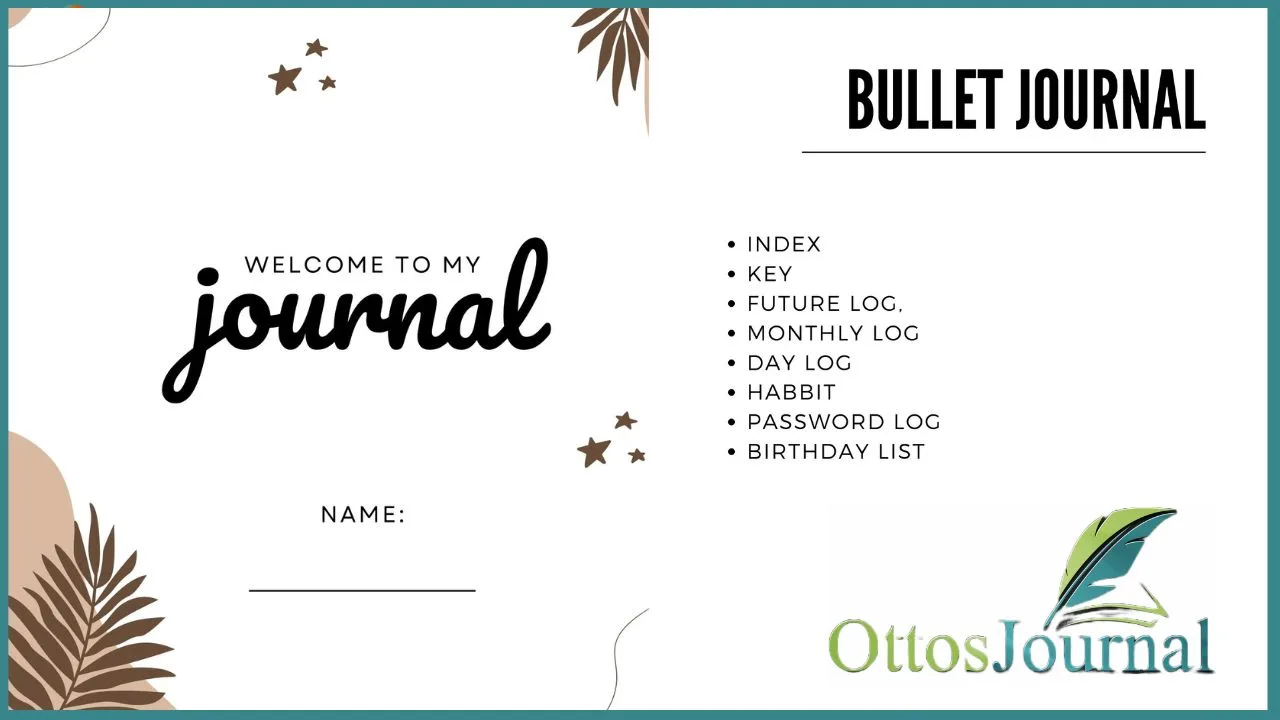Journaling has been shown to be a helpful tool for those seeking to improve their mental health and wellbeing. By putting pen to paper, individuals can express their thoughts and emotions in a safe and private way. Journaling can help individuals cope with challenges, reduce stress, and reflect on their lives. In this blog post, you will learn how to journal for mental health as well as provide some tips and tricks to get started.
There are many ways to journal for mental health, including creating a visual journal, dictating your thoughts, and saving your journal securely. Journaling can help individuals improve their mental and physical health, reduce stress, and reflect on their lives.
Whether an individual is coping with depression, anxiety, stress, or other mental health challenges, journaling can be an effective coping technique. By providing an outlet for emotions and thoughts, journaling can help individuals work through their anxious feelings and reduce stress. Journaling can be a useful tool for self-improvement, allowing individuals to reflect on their experiences and identify areas for growth.
Understanding Journaling and Mental Health
Journaling is a simple and effective way to improve one’s mental health. It involves writing down one’s thoughts, feelings, and experiences in a journal or notebook. Journaling can help people gain a deeper understanding of their emotions and thoughts, and it can also be a form of therapy.
Benefits of Journaling for Mental Health
There are many benefits of journaling for mental health. One of the main benefits is that it can help reduce stress and anxiety. Writing down one’s thoughts and feelings can be a great way to release pent-up emotions and tension. It can also help people gain a sense of control over their thoughts and feelings, which can be empowering.
Journaling can also be a great way to cope with depression and other mental illnesses. It can help people identify triggers and patterns in their thoughts and behaviors, which can be helpful in managing symptoms. Journaling can provide a safe space for people to express their emotions and work through difficult feelings.
Journaling as a Form of Therapy
Journaling can be a form of therapy in and of itself. It can help people process their emotions and work through difficult experiences. Journaling can be a helpful tool for people who are already in therapy. Writing down one’s thoughts and feelings can provide a starting point for therapy sessions, and it can also be a way to track progress over time.
Journaling is a simple and effective way to improve one’s emotional health. It can help people gain insight into their thoughts and feelings, reduce stress and anxiety, and provide a safe space for people to work through difficult emotions.
How To Journal For Mental Health
Journaling is a simple yet powerful practice that can help improve mental health. Here is a step-by-step guide for beginners on how to journal for mental health:
- Choose a quiet and comfortable place to write. It could be a cozy corner of your room, a park bench, or a coffee shop. The important thing is that you feel relaxed and focused.
- Decide on a regular time to journal. It could be in the morning, at night, or during a break at work. Consistency is key, so try to stick to your chosen time every day.
- Set a goal for your journaling practice. Do you want to relieve stress, process emotions, or gain self-awareness? Having a clear intention will help you stay motivated and focused.
- Start with a prompt or a free-write. You can use one of the journaling prompts from the search results or simply write down whatever comes to mind. Don’t worry about grammar or spelling, this is a private practice, and nobody else needs to read it.
- Write for at least 10 minutes. The length of your writing session is up to you, but 10 minutes is a good starting point. If you feel like writing more, go ahead, but don’t force yourself to write for longer than you feel comfortable.
- Review your writing and reflect on it. Take a few minutes to read what you’ve written and think about how it relates to your mental health goals. You might notice patterns, insights, or emotions that you hadn’t noticed before.
- Keep your journal organized. You can use headings, bullet points, or tables to structure your writing and make it easier to read. You can also use different colors or fonts to highlight important points.
Journaling Techniques and Prompts
Different Types of Journals
Journaling can take many forms. Some people prefer to write in a traditional diary-style journal, while others may opt for a bullet journal or visual journal. A bullet journal is a type of journal that uses bullet points to organize thoughts and tasks. Visual journals incorporate images, drawings, and other visual elements to express thoughts and emotions.
Creative Prompts for Self-Exploration
Journal prompts can be a powerful tool for self-reflection. Here are a few creative prompts to try:
- Write a letter to your younger self. What advice would you give?
- Draw a picture of your ideal self. What traits does this person possess?
- Write about a time when you overcame a challenge. What did you learn from the experience?
- List three things you are grateful for today. Why are these things important to you?
- Write a short story about a fictional character who faces a similar challenge to your own.
Journaling can be a fun and creative way to explore your thoughts and emotions. By using different techniques and prompts, you can gain a deeper understanding of yourself and improve your mental health.
Overcoming Challenges in Journaling
Journaling can be a great way to improve mental health, but it is not always easy. There are several challenges that individuals may face when attempting to journal regularly. However, with a little effort and determination, these challenges can be overcome.
Dealing with Emotional Blocks
One of the most common challenges that people face when journaling is dealing with emotional blocks. Sometimes, individuals may feel overwhelmed by their emotions and find it difficult to put their thoughts and feelings into words.
In such cases, it can be helpful to start by writing down simple observations such as the current weather, surroundings, or activities. This can help individuals to ease into the process of journaling and eventually move on to more complex thoughts and feelings.
Maintaining Consistency and Motivation
Another challenge that individuals may face when journaling is maintaining consistency and motivation. It can be easy to start a journaling practice, but it can be difficult to stick with it over time. One way to overcome this challenge is to set a specific time each day for journaling.
This can help to establish a routine and make journaling a habit. Individuals can try to set specific goals for their journaling practice, such as writing for a certain amount of time or completing a certain number of entries per week.
It is also important to remember that journaling is a personal practice, and there is no right or wrong way to do it. Individuals should feel free to experiment with different styles and techniques until they find what works best for them.
By overcoming these challenges, individuals can reap the many benefits of journaling, including improved self-awareness, self-compassion, and confidence, as well as the ability to identify and challenge negative thought patterns and work towards self-improvement.
Integrating Journaling into Your Mental Health Practice
Journaling is a powerful tool that can help individuals cope with mental health challenges. Integrating journaling into a mental health practice can provide a safe space for individuals to reflect on their thoughts and emotions, and work towards improving their overall well-being. Here are some ways to integrate journaling into a mental health practice:
Connecting with Mental Health Professionals
Journaling can be a helpful tool for individuals who are already working with mental health professionals. Therapists, counselors, and psychiatrists can encourage their clients to use journaling as a way to reflect on their thoughts and emotions outside of therapy sessions. This can help clients gain a deeper understanding of their mental health challenges, and provide a space for them to work through difficult emotions.
Journaling and Other Therapeutic Techniques
Journaling can also be used alongside other therapeutic techniques, such as meditation and cognitive-behavioral therapy (CBT). For example, individuals who practice mindfulness meditation can use journaling as a way to reflect on their meditation practice, and track their progress over time. Similarly, individuals who are working with a therapist to practice CBT can use journaling as a way to record their thoughts and emotions, and work towards changing negative thought patterns.
Integrating journaling into a mental health practice can be a powerful tool for individuals who are working towards improving their overall well-being. By providing a space for reflection and self-care, journaling can help individuals gain a deeper understanding of their thoughts and emotions, and work towards overcoming mental health challenges.
Frequently Asked Questions
Which type of journaling is beneficial for mental wellbeing?
There are various types of journaling that can be beneficial for mental wellbeing. Some of the most common types include gratitude journaling, reflective journaling, and expressive journaling. Gratitude journaling involves writing down things that you are grateful for, while reflective journaling involves reflecting on your experiences and emotions. Expressive journaling involves writing down your thoughts and feelings in a free-flowing manner.
What are 5 ways to improve mental health?
There are many ways to improve mental health, but some of the most effective include getting regular exercise, practicing mindfulness and meditation, getting enough sleep, eating a healthy diet, and seeking support from friends, family, or a mental health professional.
Do I need therapy or am I overreacting?
It is important to seek professional help if you are struggling with mental health issues. It is not a sign of weakness to seek help, and therapy can provide you with the tools you need to manage your symptoms and improve your quality of life.
How does journaling aid in managing stress and anxiety?
Journaling can be a helpful tool for managing stress and anxiety because it allows you to express your thoughts and feelings in a safe and private space. By writing down your worries and concerns, you can gain a better understanding of your emotions and develop coping strategies to manage them.
Can journaling replace therapy, or should it be used in conjunction?
Journaling can be a helpful complement to therapy, but it should not be used as a replacement. While journaling can help you gain insight into your thoughts and emotions, therapy can provide you with the guidance and support you need to make lasting changes in your life.
How do you do a self therapy journal?
A self-therapy journal involves writing down your thoughts and feelings in a structured way to help you work through emotional issues. To start, choose a specific issue you want to work on and write down your thoughts and feelings about it. Then, identify any negative or irrational thoughts and challenge them with evidence-based reasoning.
Do therapists recommend journaling?
Many therapists recommend journaling as a tool for managing mental health issues. Journaling can help you gain insight into your thoughts and emotions, and it can also serve as a useful tool for tracking your progress over time.
How do you start mental health journaling for beginners?
To start mental health journaling, find a quiet and private space where you can write down your thoughts and feelings. Start by writing down anything that comes to mind, and don’t worry about grammar or spelling. Over time, you may find it helpful to set specific goals for your journaling, such as focusing on a particular issue or emotion.
How do you journal daily for anxiety?
To journal daily for anxiety, set aside a specific time each day to write down your thoughts and feelings. Focus on your worries and concerns, and try to identify any patterns or triggers that may be contributing to your anxiety. You may also find it helpful to write down coping strategies that have worked for you in the past.
What should I write when I start journaling?
When you start journaling, write down anything that comes to mind. Focus on your thoughts and feelings, and don’t worry about grammar or spelling. Over time, you may find it helpful to set specific goals for your journaling, such as focusing on a particular issue or emotion.




